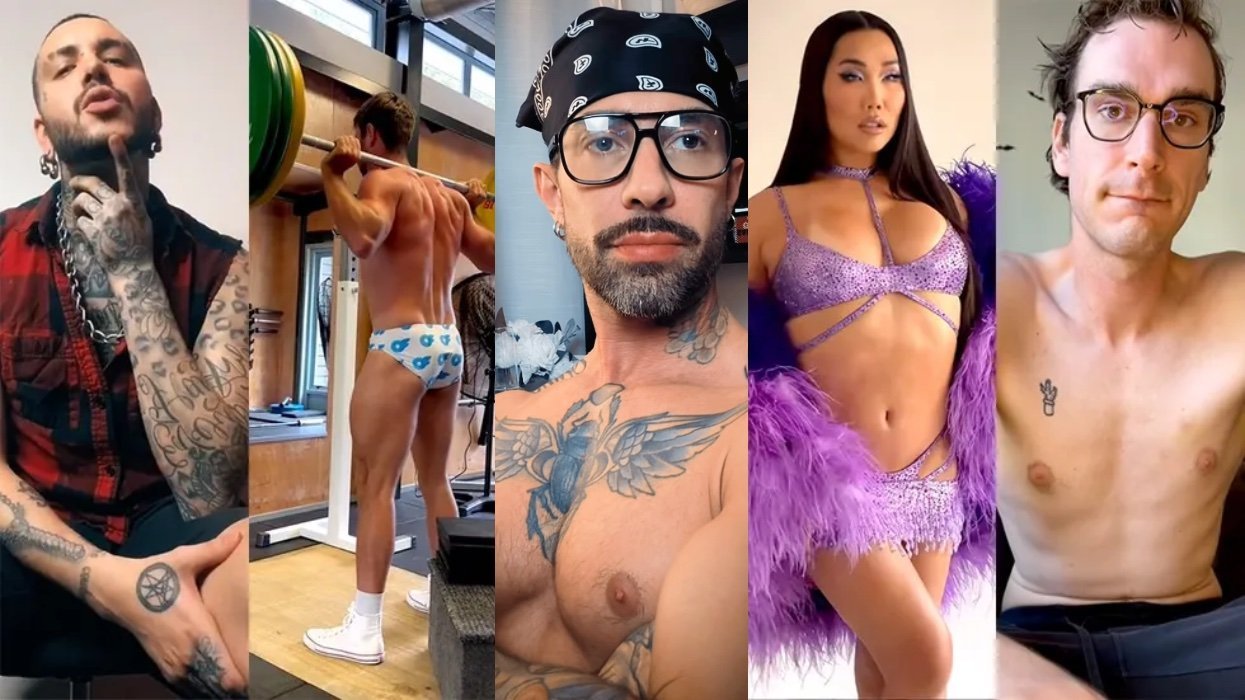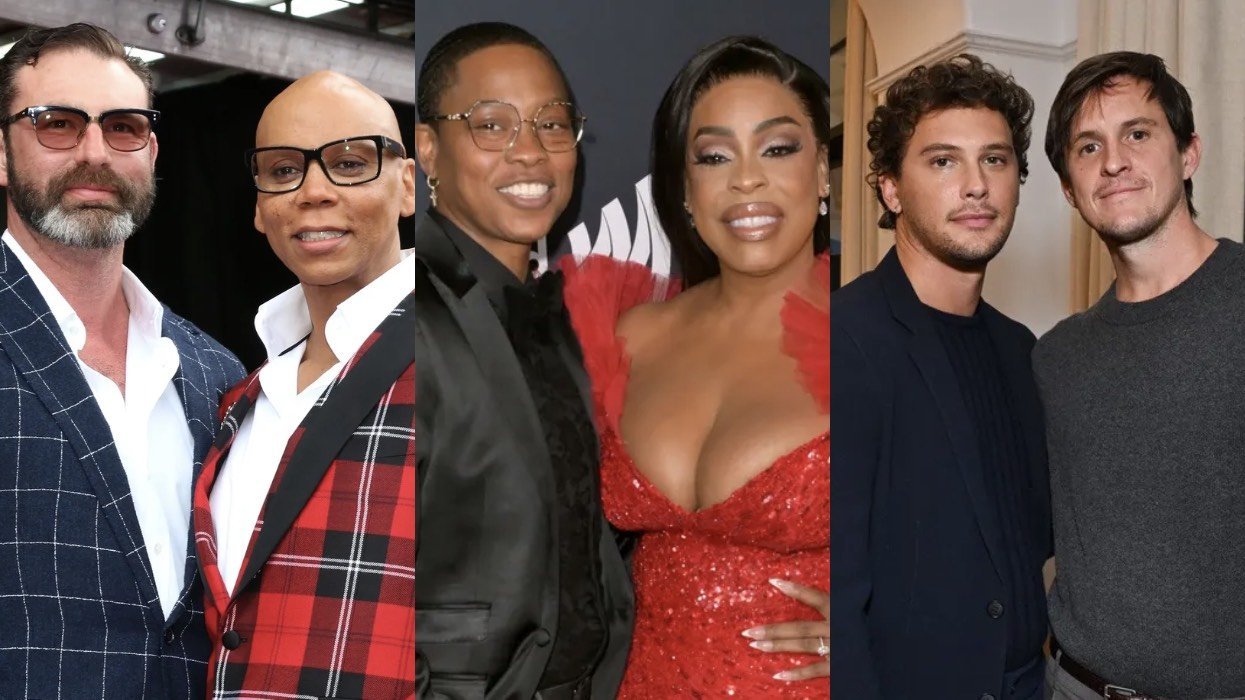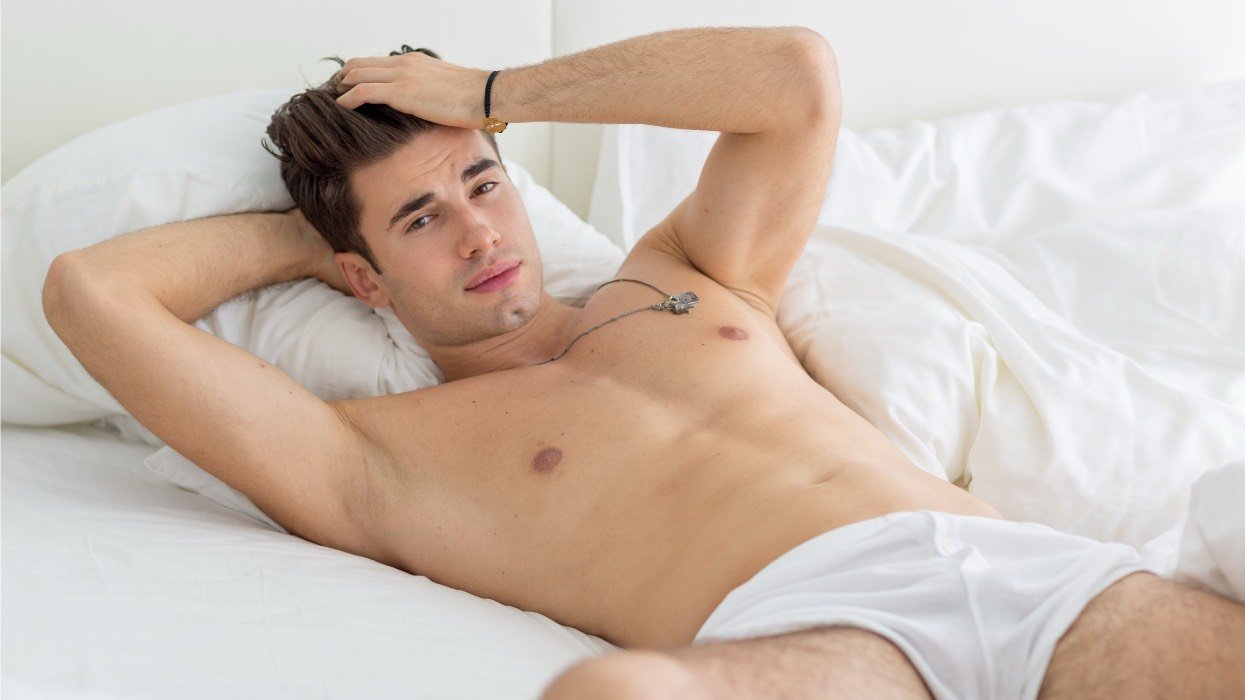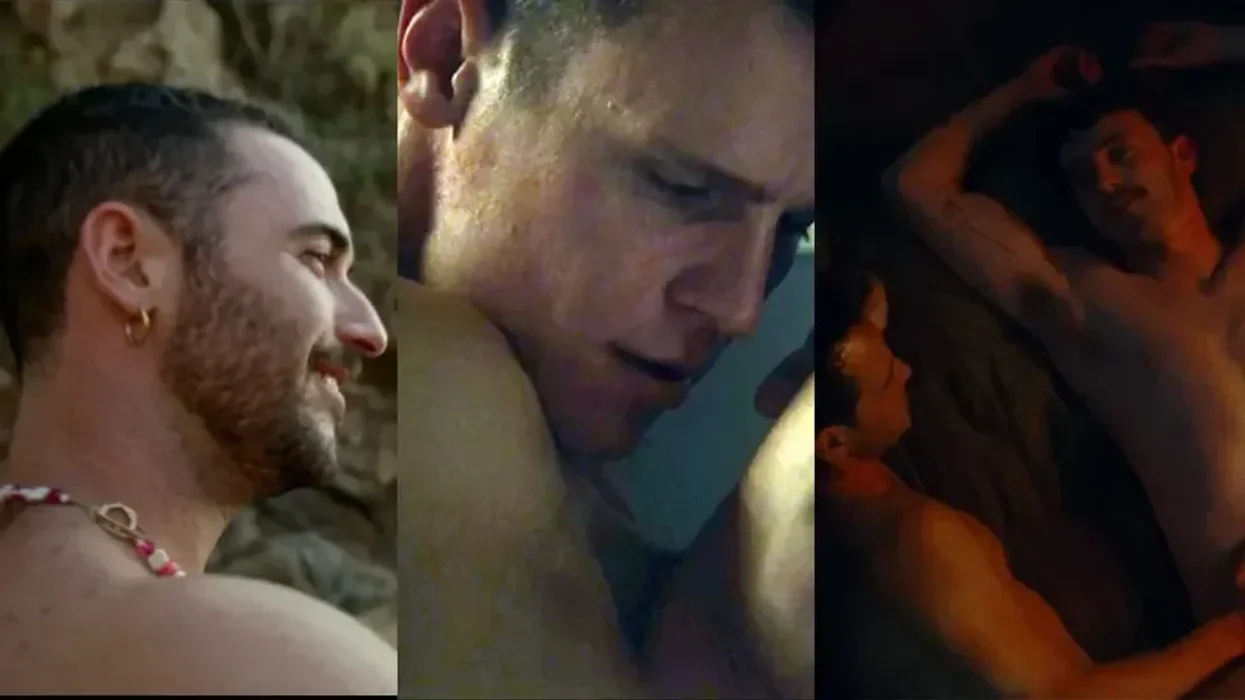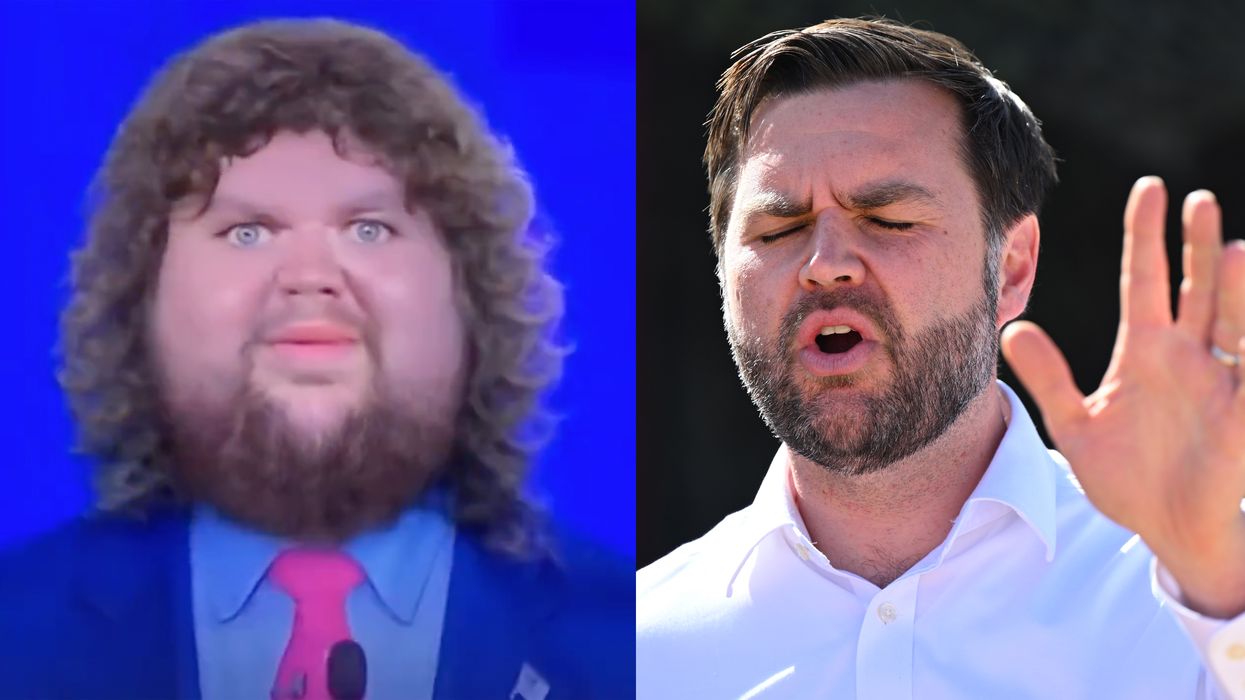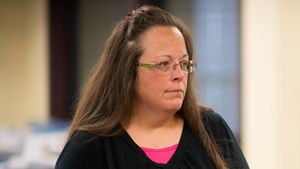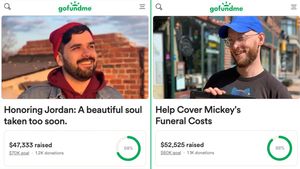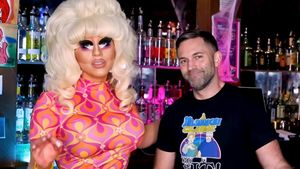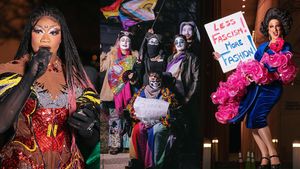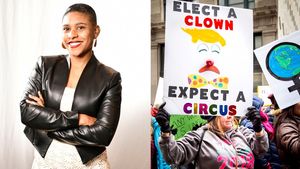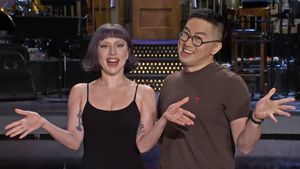In the most recent episode of the Armchair Expert podcast, host Dax Shepard truly embodied the meaning of "armchair expert."
An “armchair expert” is described in the Urban Dictionary as “someone who claims to know all the answers to a problem, situation, or scenario but has little or no experience or real understanding of it.”
Regular listeners of Armchair Expert, Shepard, have come to accept, understand, and even be entertained by the actor’s “contrarian” personality and the fact that he enjoys playing “devil’s advocate” when engaging in most discussions. Over the years, he’s been occasionally called out by his cohost, Monica Padman, when trying to bring up questionable points about women and/or people of color despite the fact that he’s a white man.
On Monday, September 25, a new Armchair Expert interview came out with beauty influencer, entrepreneur, and Queer Eye star Jonathan Van Ness, who identifies as nonbinary. But what started as a lighthearted conversation quickly turned into a discussion about whether The New York Times is considered a left-leaning/progressive news organization. Shepard argued that it is, but Van Ness gently pointed out that a publication shouldn’t be considered progressive when it platforms so much “anti-trans” content.
In response to Van Ness’ comment about The New York Times, Shepard said: “Some people are very uncomfortable about teenagers transitioning. They’re challenging that. How do we know that the person’s not gonna change their mind?” Two things happened at the same time here: Shepard believed that he was about to engage in another spirited debate with an interviewee, while Van Ness was surprised to hear the actor bringing up arguments and talking points that have been strongly pushed by conservative pundits in the last few years.
“I feel like I’m talking to my dad,” Van Ness replied, clearly attempting to bring a fun/lighthearted approach to the interview.
For context, Shepard identifies as a Democrat and has regularly reaffirmed his commitment to liberal causes. For instance, after getting engaged to actress Kristen Bell in 2009, the couple held off from getting married as a form of protest to advocate in favor of same-sex marriage rights, which was widely reported at the time. Specifically, Shepard and Bell explained in numerous interviews that they didn’t feel right getting married until their gay friends had the same rights as they did. On the other hand, Shepard has often noted that he’s very comfortable challenging progressive ideals if they don’t make sense to him.
“This whole notion that to be critical or to question [something], you’re seeing the whiplash reaction to that,” Shepard said about the topic of trans inclusion in sports. “To even question it makes you an enemy. I don’t think that’s the way forward.”
Van Ness argued that “when you have an outsized reaction to something, there’s a good chance that you’re being exposed to misinformation and disinformation. And a lot of the rhetoric around anti-trans inclusion and just the anti-trans backlash does have a lot of misinformation and disinformation in it.”
While Armchair Expert does feature a series of interviews with experts that revolve around specific topics, Van Ness was invited as a celebrity to talk about his new podcast shows. Nonetheless, Shepard kept pushing counterpoints to basically everything that Van Ness said about trans inclusion in sports.
“Do I wish that the trans woman athlete had access and could play and follow her dream? I do. Will I elevate her rights over women? We’re pretending that women aren’t the ultimate marginalized class throughout history,” the host said, adding that he believed it was a “fair question” to evaluate if it was “fair” for cisgender women to compete against someone who had been classified as a male athlete before transitioning.
At this point, Van Ness brought up the “targeted onslaught toward queer people” that has been happening in the last few years and explained how hard it was for them to “watch Dax Shepard parrot a lot of the same things” in this interview. While acknowledging that they didn’t see Shepard as an “enemy,” Van Ness noted that it was “disappointing” to see the actor “think he’s really fighting for something” by bringing up these anti-trans arguments.
The Queer Eye star said:
“I’m a nonbinary f*cking trans person. When I talk to my dad or people who say similar things, it’s hard to be cool through that. I’m not calling you a transphobe. You cannot be transphobic and still have thoughts that espouse trans misogyny and espouse transphobic ideologies or beliefs... Just like how I have to challenge biases about white privilege and make sure I’m not speaking over someone who is a person of color or a Black person if we’re talking about racism or police brutality.”
Shepard later apologized for getting into such a heated debate with Van Ness, noting that he didn’t want any of that to happen. This is when Van Ness got emotional, noting how “tired” they are to fight for trans kids who just want to play sports. Van Ness talked about the very positive impact that sports had in their life and that it’s sad to see trans kids being excluded from sports just for being themselves. Van Ness also argued that most athletes don’t go on to play in major leagues or the Olympics – they just play sports as a way to stay active, socialize, learn life skills, and feel like they’re a part of a community.
“I could just cry because I’m so tired of having to fight for little kids because they just want to be included. I wish that people were as passionate about little kids being able to be included or grow up as they were about fictitious women’s fairness in sports,” Van Ness concluded.
On Tuesday, September 26 – one day after their interview on Armchair Expert – Van Ness shared a video on Instagram further clarifying and explaining the points they made during this recent interview with Shepard.
“Let’s talk about transphobia in sports,” the Queer Eye star said in the video. “There are so many conversations about trans inclusion in sports. We have state houses all over the United States that are passing bills to make sure that no trans kids are allowed to play sports at any level in their state… and I just think that this is a huge travesty. The science that we have now says that transgender women do not hold an unfair biological advantage over cis women. That’s what the science says.”
They added, “So much of the rhetoric is, ‘If someone has gone through male puberty and they’ve ever experienced that male puberty, then they will always be unfair to play in women’s sports. We have to protect women’s sports, so we can’t have anybody who’s experienced male puberty in women’s sports if it’s a trans woman.’ Okay, let’s say that that is true, even though the science does not support that. We now have dozens of states in the United States that have outlawed gender-affirming care for trans kids, so if there was a young trans girl who wanted to be a figure skater or a gymnast or a golfer, she wouldn’t be able to access the hormone blockers that would make it so she would not go through a puberty. So do you see how we have ‘governments’ and ‘governing bodies of athletics’ that are making it so trans people can’t play sports anyway?”
“Trans women have been able to play tennis and swim for the last two decades,” Van Ness continued. “But how many Olympic trans tennis players or swimmers can you think of? Exactly: zero. So often we hear how trans people have higher instances of murder, but it’s not only murder and violence that people face. We also face higher instances of unemployment and housing insecurity. Why do you think it’s so hard for people to hold down jobs? Why do you think it’s so hard for people to find housing? When I was growing up, I got to play sports. And when I played those sports on teams, I learned about rejection, how to overcome an obstacle, how to work together, and I learned people skills. When we take away the rights of kids to play sports with their peers, where you learn about those sorts of things, it’s a huge injustice to trans kids. This is not just about Olympic medals, this is also about society and about allowing people to learn and grow together. We are literally legalizing bullying of trans kids under the guise of ‘protecting girls in sports.’”
They concluded, “Here’s the thing about sports: sports are dangerous. You can break your foot, you can break your toes, and that happens all the time in sports right now. Sports are inherently dangerous. Sports are inherently unfair. Let’s say the next Michelle Kwan lives in Mississippi. There are no figure skating rinks there. What if her parents don’t have money to give her figure skates and the best coaching? Is it fair that rich kids can afford better coaches and better facilities? Does that mean that rich kids shouldn’t be able to play sports? No. This [discourse] is so wrapped up in transphobia. And, by the way, if your state house passed a law about trans inclusion in sports… the amount of time we’ve spent legislating against trans people, we have much bigger problems than allowing trans kids to play sports.”
Dax, we hope you are (silently, please) listening and learning.












































